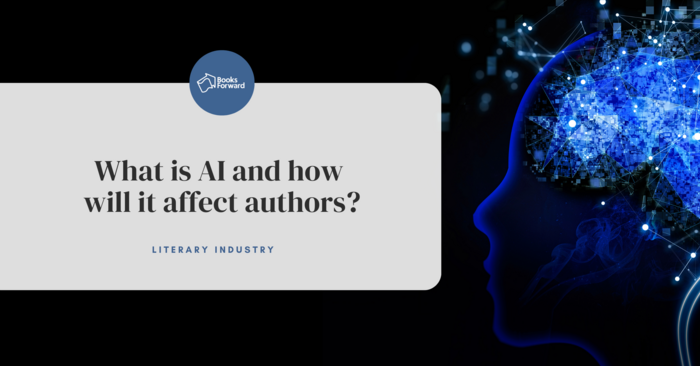This blog post was not written by artificial intelligence, though we highly considered it.
Artificial intelligence, or AI, is a pretty broad term that describes using computers and machines to mimic the human mind. Whether it’s Siri or Alexa, face recognition software or even predictive text, the use of AI is becoming more and more prevalent on a daily basis. And new platforms and software are constantly being developed and improved upon.
How authors can use AI
First and foremost, you need to familiarize yourself with what’s available. Most authors will utilize what’s known as generative AI, which can produce various types of content, like images, audio, text, etc. Below are only a smattering of the AI options out there, though they’re definitely some of the most popular. Acquaint yourself with different platforms to find what works best for you.
There are genuine reasons to use AI, like getting a head start on a project; doing the routine, mundane tasks; augmenting the scalability of tasks, etc. Below are some ways to consider utilizing AI as an author:
- Generate ideas for your blog
- Organize an outline of your current work in progress
- Workshop back cover copy
- Draft query emails for agents and editors
- Analyze author bios and draft your bio at different lengths
- Brainstorm social media captions
- Recommend questions for author events, talking points for interviews, etc.
In general, you should never take what AI has created and use it as is. These tools are great to research, inspire and jump-start ideas, but your voice and personality are what draw people to your content. A social media caption created by AI is going to sound like it was created by AI. Remember to always keep the human element in your content; use the ideas AI has given you and expound and better it.
It’s also important to think about what you are putting out into the world. As we see increases in spam, books that are completely written by AI, and more, the relationships we build from person to person are becoming more important than ever. It’s incredibly important to keep in mind the responsibility we hold for the content we provide people.
AI and book production
Publishers are also testing AI capabilities not just in marketing but in the book production phase as well. When it comes to forming metadata, brainstorming keywords, and even indexing, AI cas assist publishers in some of the more routine tasks, allowing them to free up time and personnel for more creative endeavors. The time it takes to get a book to market will also likely shrink — with a shrinking of costs included — with companies’ increased use of AI.
Whether you realize it or not, AI is all around the publishing world in some of the programs you’re already using: Tools like Microsoft Word, PowerPoint, and even PDFs have accessibility tech built into them. And authors frequently employ platforms like Grammarly and ProWritingAid. Even using an EPUB accessibility checking tool, like Ace by DAISY, is common practice for helping publishers meet industry standards and file requirements for ebooks.
Legal landscape of AI
Important questions are even now being worked out in the legal system about protectability, authorship and ownership of AI-generated material. Currently, precedent says that to own something, there must be human authorship — works created by animals, celestial beings, machines, etc. don’t count.
Furthermore, the U.S. Copyright Office has declared that things made with AI need to have a disclaimer on them, though the agency is continuing to collect information to analyze current law and how it applies to generative AI. Cases involving graphic novels with AI-generated images and human-authored texts, as well as whether using existing materials to train AI is infringement are currently working their way through the courts.
The final word on AI
Be responsible and remember why you became an author in the first place: because you had something to say. AI content will always be just that — content. But art comes from humans, and no matter how much inspiration AI provides, it’s not something authors can depend on full-stop.

Jennifer Vance is a publicist at Books Forward, an author publicity and book marketing firm committed to promoting voices from a diverse variety of communities. From book reviews and author events, to social media and digital marketing, we help authors find success and connect with readers.
Interested in what’s possible for your book sales and building readership? Check out our services, tell us your goals, and get a customized publicity campaign tailored just for you.

